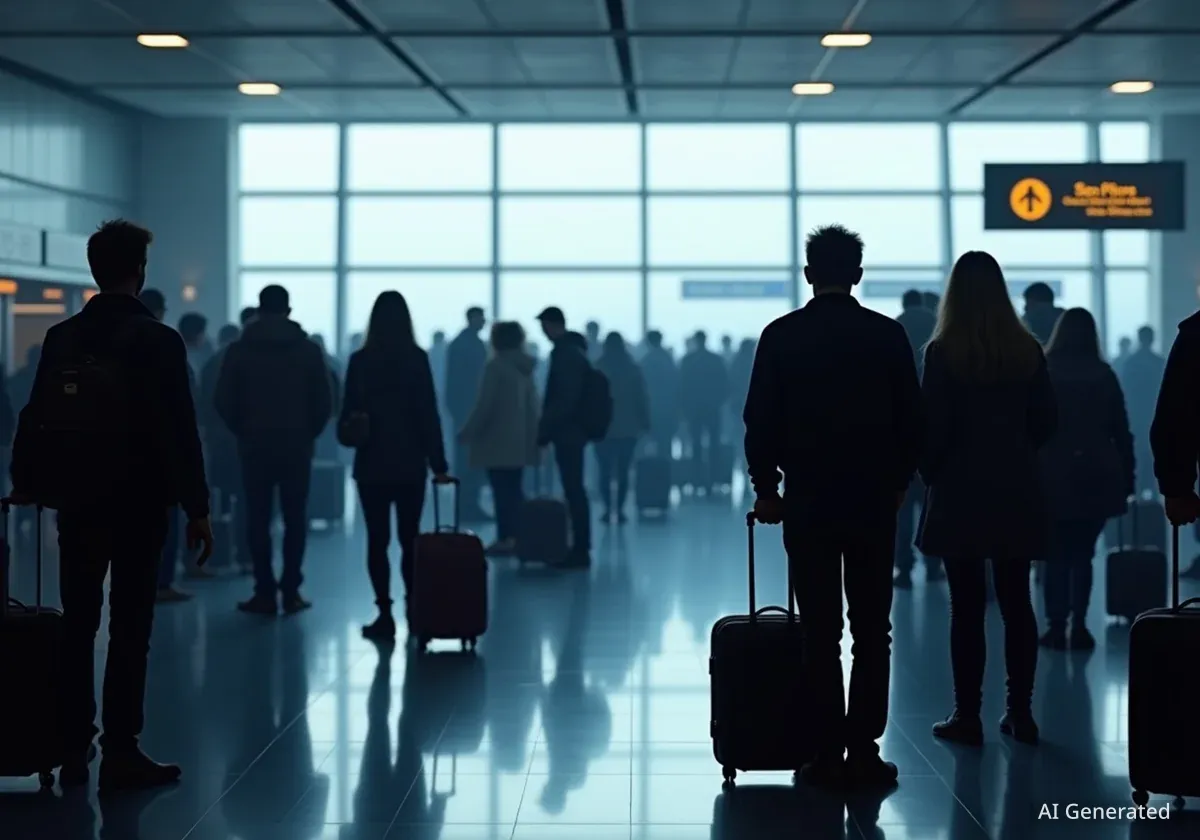With the deadline for a federal funding agreement approaching on September 30, 2025, travelers are facing uncertainty. If U.S. lawmakers fail to pass a budget, a government shutdown will occur, leading to potential disruptions in air travel, closures at national parks, and delays in passport services.
While essential services like air traffic control will continue, the shutdown's effects could create significant challenges for those with upcoming travel plans during the fall and holiday seasons. Understanding these potential impacts is crucial for anyone planning to travel in the coming weeks.
Key Takeaways
- Air Travel: Air traffic controllers and TSA agents will work without pay, which could lead to staffing shortages, longer security lines, and flight delays.
- National Parks: Parks may remain accessible, but visitor centers, restrooms, and other facilities are likely to close. Federally run museums and monuments may shut down completely.
- Passport Services: Passport and visa processing is expected to continue but could experience significant delays due to potential staffing issues.
- Travel Insurance: Most standard travel insurance policies do not cover disruptions caused by a government shutdown.
Air Travel Operations During a Shutdown
The core functions of the aviation system are designated as essential, meaning air travel will not come to a complete halt. Air traffic controllers and Transportation Security Administration (TSA) officers are required to report to work to maintain the safety and security of the nation's airspace.
However, these essential employees will not receive their paychecks for the duration of the shutdown. This situation has historically led to an increase in employee absences, often referred to as "sick-outs." A reduction in available staff can create a cascade of problems across the travel network.
Potential for Longer Airport Security Lines
The most immediate impact for passengers will likely be at airport security checkpoints. If a significant number of TSA officers do not report for duty, airports may be forced to close some security lanes. This consolidation of screening operations can lead to substantially longer wait times, especially at major hubs.
During previous shutdowns, some airports reported wait times that were double or triple the norm. Travelers should be prepared for this possibility by arriving at the airport much earlier than usual, especially for domestic flights where a two-hour buffer might not be sufficient.
Air Traffic Control and Flight Delays
The situation with air traffic controllers is also a major concern. These highly skilled professionals are responsible for safely managing thousands of flights every day. Working under the stress of not being paid can affect morale and staffing levels.
According to aviation experts, even a small shortage of controllers at a key facility can cause ripple effects nationwide, resulting in ground stops, departure delays, and cancellations. Airlines may have to proactively adjust their schedules to accommodate the reduced capacity of the air traffic control system.
What Defines 'Essential' Personnel?
During a government shutdown, federal employees are categorized as either "essential" or "nonessential." Essential employees are those whose work is necessary to protect human life and property. This includes roles in national security, public safety, and critical infrastructure, such as air traffic control and law enforcement.
Impact on National Parks and Federal Attractions
Travelers planning to visit national parks or federally managed sites should prepare for significant disruptions. While the physical land of a national park may remain open, the services and facilities that support visitors will likely be unavailable.
This means visitor centers, ranger stations, campgrounds, and restrooms will probably be closed and unstaffed. Emergency services within parks could also be severely limited. The lack of staff also means that roads may not be maintained and trash will not be collected, posing potential safety and environmental hazards.
Federally operated museums and monuments, such as the Smithsonian Institution in Washington, D.C., are expected to close their doors entirely to the public. Travelers whose itineraries are built around these attractions will need to find alternative activities.
Did You Know?
During the 2018-2019 shutdown, which lasted 35 days, national parks experienced significant issues with overflowing trash and damage to natural resources due to the absence of staff and services.
Passport and Visa Processing Delays
The U.S. Department of State's passport and visa services are funded by application fees rather than congressional appropriations. For this reason, these operations are generally expected to continue during a shutdown.
However, the agencies are not entirely immune to disruption. Passport agencies located in federal buildings that close may be inaccessible. Furthermore, administrative and support staff who are subject to furlough could create backlogs and slow down processing times.
Anyone with an urgent need for a passport or visa should submit their application as soon as possible to avoid potential delays. It is also wise to check the operational status of specific passport acceptance facilities before visiting.
"While core travel infrastructure is designed to remain operational, a prolonged shutdown tests the resilience of the system. Travelers need to pack their patience and build extra time into every step of their journey, from getting to the airport to waiting for their flight."
How Travelers Can Prepare for a Shutdown
If you have travel plans that coincide with a potential shutdown, proactive planning can help mitigate some of the stress and disruption. Flexibility will be your most valuable asset.
Practical Steps to Take
Here are several concrete actions you can take to prepare:
- Arrive Early at the Airport: Plan to arrive at least three hours before a domestic flight and four hours before an international flight to account for long security lines.
- Monitor Flight Status: Check your flight status directly with your airline frequently in the days and hours leading up to your departure. Sign up for text or email alerts.
- Review Airline Policies: Familiarize yourself with your airline's policies on flight changes and cancellations. Some may offer waivers, but this is not guaranteed.
- Pack Light: If possible, travel with only a carry-on bag to avoid potential issues with checked luggage and to move through the airport more quickly.
- Have a Backup Plan: If your trip revolves around visiting national parks or federal museums, research alternative attractions or activities in the area.
- Check Your Travel Insurance: Do not assume you are covered. Read the fine print of your policy. Most travel insurance plans do not list a government shutdown as a covered reason for trip cancellation or interruption.
Ultimately, while a government shutdown introduces many unknowns, essential travel can still proceed. The key is to stay informed, remain flexible, and set realistic expectations for your journey.





